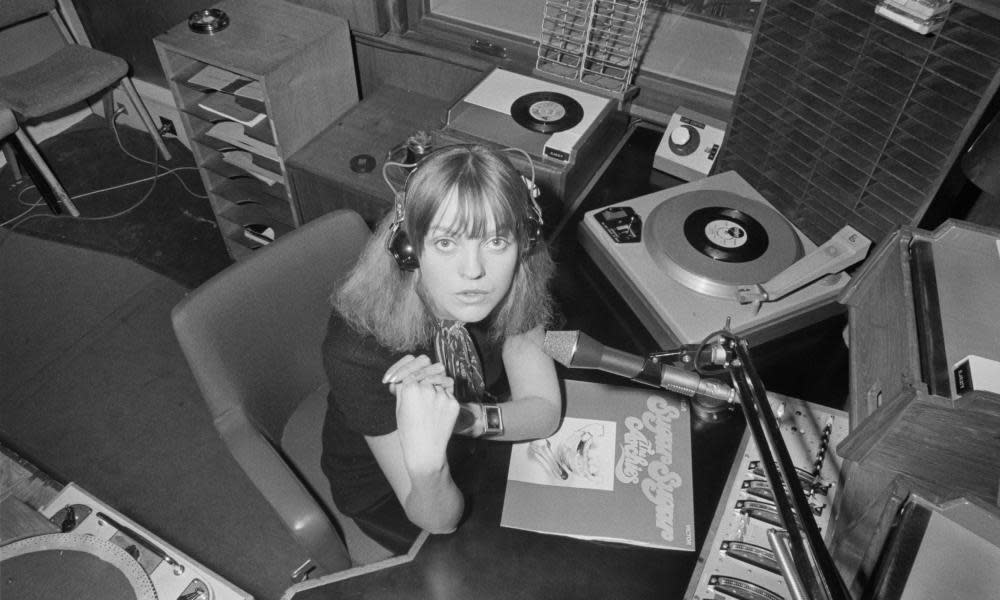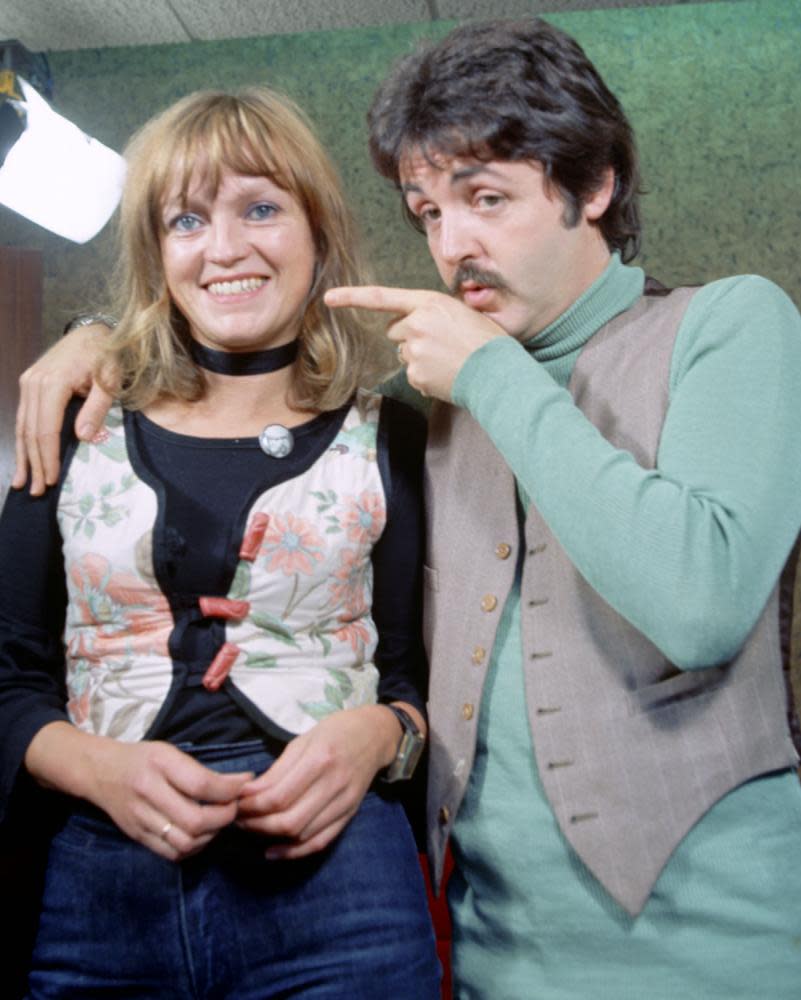Hey Hi Hello by Annie Nightingale review – five decades of pop gusto

Irvine Welsh once wrote that Annie Nightingale was less a DJ and more “a surrogate cool big sister” to disaffected teenagers. “When the flatulent sounds of loud, boring, thick and egotistical men strafed the airwaves, Annie’s cool funky tones always stood out.” It’s true. Back when Radio 1 aspired to be an end-of-the pier knees-up, Nightingale never became one of “them”. She championed accessibly left-of-centre performers such as Ian Dury and Jonathan Richman, didn’t whoop or whinny; she paved paths for many others to follow.
Hey Hi Hello, published to mark the 50th anniversary of her first broadcast on Radio 1, is an agreeable if sometimes ragged mash-up of autobiography, transcripts of interviews with musicians from Bob Marley to Billie Eilish and testimonials from friends such as Underworld’s Karl Hyde. It’s less of a straight memoir than Nightingale’s Wicked Speed (1999), which contained vivid stories of travelling the world with the Police and endless bacchanals at her Grade II listed home in Brighton.
The new book, sprinkled with the occasional yoof-text (“FFS”, “LOL”) and references to life during lockdown, has its fair share of entertaining anecdotes. There’s a story about Radio 1’s annual “school photo”, when guest celebrities would join the DJs for a painful grin-athon. One year it was magician Paul Daniels. In 2002 it was Tony Blair. Nightingale, fearing she might be sacked if she told him what she thought about his plans to take the country to war with Iraq, managed to get out: “Can I say to you that the NHS junior doctors are very unhappy.”

Now a frankly unbelievable 80, Nightingale is most poignant when discussing how she turned her back on her convent school upbringing in the 1950s. She was always a modernist at heart, turned on by modern jazz and Frank Sinatra in Otto Preminger’s The Man With the Golden Arm, trekking alone to bohemian Soho where she encountered new rhythms and chemicals. She headed to Paris where she lost 10lb in a week and “nearly picked up an STD”. She was so thrilled by the seditious satire of David Frost and the satirical TV programme That Was the Week That Was that she sent in sample skits. “We had never known Before The War so we had no sense of missing out on anything, nothing to feel we were missing out on,” she says. “I always wanted to be in the swirl of forward movement, and always believing that things were going to change for the better.”
Nightingale appeared as a panellist on Juke Box Jury as early as 1963, was present at the first British Song festival (when a mix-up led to Lulu having to return her prize to Kenny Lynch), hung out with the Beatles, introduced postpunk bands on The Old Grey Whistle Test, was an early cheerleader for acid house and techno (and Daft Punk’s “Da Funk”). She never lost the faith. It’s a joy to read her talking about how, when she first heard Grace’s 2015 version of “You Don’t Own Me”, she instantly recalled hearing Lesley Gore’s 1963 original, a song that has “since become an international feminist anthem. And my personal one, too”.
Nightingale doesn’t talk at length about her family or matters of the heart. She doesn’t bitch about former colleagues or settle old scores. But there are moments when she can’t but help pass judgment on the absurdity of the modern-day electronic entertainment complex. On a work trip to Ibiza, she once met an “up-and-coming French DJ who wore a T-shirt decorated with big fat shiny letters on the front saying: ‘FUCK ME I’M FAMOUS’!” It turned out to be David Guetta who, just a few years later, was raking in close to $40m a year. Is he (or, another example she cites, Calvin Harris) anything more than the “modern equivalent of the mobile DJ” who, as she did, traditionally played at “Young Farmers’ boozy get-togethers, or questionable clubs in Birmingham with shiny tiled walls”?
The time when Radio 1 broadcasters were vetted by a branch of M15 is over. Few listeners believe that the ideal DJs are “‘husband substitutes’, jolly chaps who would keep the little woman at home entertained”. Nightingale herself has lost none of her gusto. She’s still an evangelist for nocturnal radio: in the witching hours, DJs are more likely to be untethered from daytime playlists and to be given free rein. They can establish greater intimacy. “People maybe don’t realise how much fun you can have when the bosses aren’t listening,” she writes. She could “read out messages like: ‘Shout out to Gaz – hurry up and get round to ours, mate, we’ve run out of Rizlas.’”
• Hey Hi Hello: Five Decades of Pop Culture from Britain’s First Female DJ is published by White Rabbit (£20). To order a copy go to guardianbookshop.com. Delivery charges may apply.

 Yahoo News
Yahoo News 
